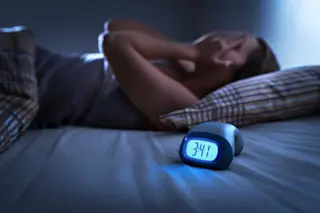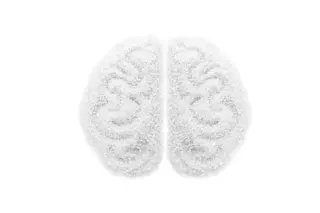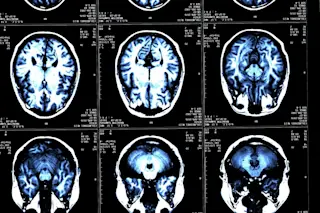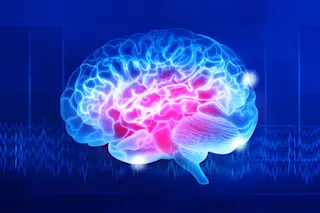Three o’clock in the morning — for some people, it’s the most anxiety-producing time. It’s when they wake up after just a few hours of shut-eye and then fail to fall back asleep.
For other people, it’s the dreaded hour when they realize they have yet to fall asleep. The clock is ticking toward their wake-up time, and they haven’t even hit a dream cycle.
Missing sleep can lead to more than just a sluggish day. Sleep medicine scientists have established that poor sleep is related to poor health. And in more recent years, sleep medicine researchers have also gained a greater understanding of how a lack of sleep can jeopardize mental health.
Scientists and advocates are calling for more research and attention into what they warn is a growing public health concern.
Why We Need Sleep
The body needs sleep, but not everyone is able to sleep well. Sleep medicine researchers say this is akin to not having clean air, nutritious food, or fresh water.
“Sleep is not just something we do because we like it or because it’s good for you. Sleep is a biological requirement for human life. It’s non-negotiable,” says Michael A. Grandner, an associate professor of psychiatry and the director of the Sleep & Health Research Program and the Behavioral Sleep Medicine Clinic at the University of Arizona College of Medicine.
After the Industrial Revolution, Grandner says disorders like insomnia became romanticized and seen as part of a work culture in which people who slept less were admired for being strong, devoted, and capable of working more. He says that standards are changing, and people are beginning to recognize that a lack of sleep impacts a person’s physical and mental health.
“We are in this period of change in how our society looks at sleep health in general,” he says.
Read More: The Importance of Sleep for Your Body
How Sleep Affects Mental Health
Part of the change in how people view their own sleep health is due to a growing understanding of the relationship between sleep and psychiatric disorders. Sleep disorders like insomnia are a risk factor for mental health issues such as anxiety or depression.
Researchers are still learning about the relationship, but they are increasingly seeing how sleep disorders can predict the development of a psychiatric disorder.
Sleep and Memory
Although scientists are still examining the relationship between sleep and psychiatric disorders, Grandner says there are several theories, and one involves memory. When a person sleeps, their brain processes and stores memories. Sleep disorders like insomnia disturb this process, and the person may miss out on memory consolidation.
Thus, these memories may be missing when a person needs to interpret social situations. Grandner gives the example of a person seeing someone frown in their direction. Past memories could help the person see the scowl as a part of the other person’s bad day, which could spark empathy. But without those memories, the frown could seem personal. This could cause the person to feel anxious or threatened.
“Memory and emotion are at the core of a lot of common mental health issues,” Grandner says.
Sleep and Suicide Risk
Another theory considers how the brain functions in the middle of the night when the body is meant to be asleep. The Mind After Midnight hypothesis holds that in the overnight hours, a tired brain that is unable to sleep is not functioning optimally — a risk factor for more extreme behavior.
The brain should be asleep and performing maintenance tasks like memory processing and storage or emotional regulation. Instead, it’s being forced into action mode when “cognitive capacity and mood regulation are diminished.”
During the overnight hours, self-harm, thoughts of suicide, and violent crime spike. Unhealthy behaviors like substance abuse or poor food choices are also likely. The hypothesis holds that it’s during these sleep-deprived times that a stage is set for future psychiatric disorders.
“When your body wants to be asleep, you don’t make good choices,” Grandner says.
Read More: This Is Your Brain Without Sleep
The 5 Sleep Disorders
The International Classification of Sleep Disorders (ICSD) is a diagnostic manual that puts sleep disorders into seven main groups.
There are insomnia disorders, which relate to the inability to fall asleep or stay asleep. Sleep-breathing disorders involve conditions like sleep apnea, in which a person stops breathing. The third group, central disorders of hypersomnolence, include narcolepsy and other forms of excessive sleepiness. Circadian rhythm sleep-wake disorders consist of disorders in which a person’s sleep-wake cycle is out of sync.
The fifth group, parasomnia, entails abnormal movements such as walking, talking, or eating. This group also includes nightmares, night terrors, and sleep paralysis. Parasomnia is distinct from the sixth group, sleep-related movement disorders, which are characterized by movements that disturb sleep, like restless leg syndrome. Lastly, the ICSD has an “other” category for disorders that do not fit into the other groups.
Read More: What Really Happens During Sleep Paralysis and How to Stop It
Which Sleep Disorder Is Most Common?
Insomnia is likely the most common sleep disorder. But scientists can’t say with certainty how many people suffer from it.
“We actually don’t know the prevalence in the population of most sleep disorders,” Grandner says.
Part of the problem is that sleep studies are needed to diagnose disorders like sleep apnea, Grandner says. For some people, this can mean an overnight stay in a sleep clinic or wearing diagnostic equipment at home. These barriers keep people from seeking out a diagnosis and prevent scientists from fully knowing the epidemiology.
Read More: Irregular Sleep Schedules Can Lead to Health Risks
Studying Sleep Disorders
Scientists who study sleep medicine say that more research is needed. In the spring of 2024, almost three dozen members of Congress signed a letter supporting funding for sleep health research, which would possibly allow agencies like the Centers for Disease Control and Prevention to study sleep disorders in the American population and get a better sense of the epidemiology.
“It’s something that’s getting voted on that those of us in the community are advocating for — we’re saying, ‘Please, we need this information,’” Grandner says.
Read More: Can Animals Have Sleep Disorders?
Article Sources
Our writers at Discovermagazine.com use peer-reviewed studies and high-quality sources for our articles, and our editors review for scientific accuracy and editorial standards. Review the sources used below for this article:
Neurologic clinics. Psychiatric disorders and sleep
Frontiers in Network Physiology. The Mind After Midnight: Nocturnal Wakefulness, Behavioral Dysregulation, and Psychopathology
American Academy of Sleep Medicine. The AASM International Classification of Sleep Disorders – Third Edition, Text Revision (ICSD-3-TR)
American family physician. Common Sleep Disorders in Adults: Diagnosis and Management
Sleep Review. Congress Members Rally Behind Sleep Health Funding and Awareness















